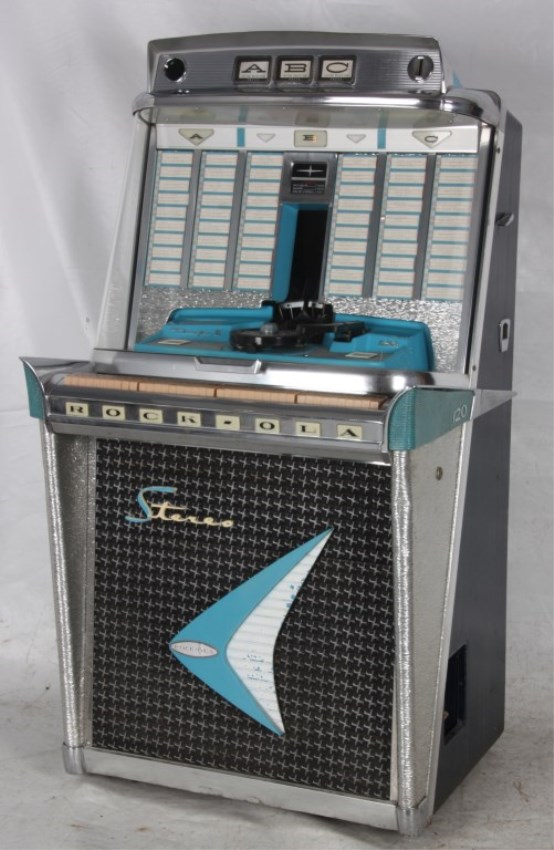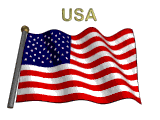| |
60s Rock 'n Roll Headline News
1960
-
Singer/songwriter Jesse Belvin dies in a car crash following a concert in
February. Two months later Eddie Cochran dies at 21 in a car crash while on tour in England with Gene
Vincent.
-
The attempted mainstream watering down of rock continues with the birth
of dance records, specifically the twist which has adults taking part as well as kids and becomes the
most widespread dance craze since the Charleston ruled the 20's.
-
The Shirelles launch the girl group era with "Will You Love Me Tomorrow"
which manages to get sex back into songs under the veil of innocence.
-
Motown Records makes its first splash with "Shop Around" a #1 R&B hit
by The Miracles.
-
Roy Orbison has his first major hit with "Only The Lonely" and helps to
alter rock songwriting of the 60's to focus on more introspective issues.
-
The Ventures hit instrumental "Walk - Don't Run" leads to the creation of
surf-rock which brings the electric guitar back into prominence.
-
Elvis Presley is discharged from the Army and immediately scores a series
of hit singles and albums upon his return with a slightly less menacing, more mature
persona.
1961
-
Rock's second era begins in earnest with the debut of Del Shannon's
"Runaway" which is the first pure unadorned and uptempo rocker to hit #1 on the Pop Charts in almost a
year. The song also introduces the "musitron", an early form of the
synthesizer.
-
The Marvelettes "Please Mr. Postman" becomes the first #1 Pop hit
released on a black owned and operated label - Motown.
-
A widespread revival of the mid-50's vocal group sound results in the
re-appearance on the charts and airwaves of dozens of songs from 1954-1957 and the brief resurgence of
similarly styled newer groups.
-
"Frat Rock" begins to show up with Gary "US" Bonds hit "Quarter To Three"
with its emphasis on a frenzied atmosphere rather than on intricate production.
-
Soul music starts gaining a foothold with hits by Sam Cooke, James Brown,
Solomon Burke and former Drifters lead signer Ben E. King, who's "Stand By Me" is a #1 R&B
record.
-
Elvis Presley gives his last live performance for eight
years.
1962
-
Motown continues to expand its power-base scoring #1 R&B hits by both
Mary Wells and the Contours and while attracting musical talent from all over Detroit that will soon
result in the label becoming the biggest in the country.
-
Southern soul has its first major hit with the instrumental "Green
Onions" by Booker T. & The MG's.
-
Ray Charles successfully melds country music with soul and crosses into
the pop realm with the album "Modern Sounds In Country & Western Music".
-
The surf music craze, begun by instrumentalists in the previous few
years, adds vocals when the Beach Boys score their first hit "Surfin' Safari".
-
Surf-rock guitarist Dick Dale debuts the new Fender Reverb
amplifier.
-
The pacific-northwest becomes a hotbed for "garage bands" such as The
Sonics, The Kingsmen and The Wailers which signals a more rebellious youthful aesthetic coming back to
rock.
-
The Four Seasons greaser vocal harmonies explodes on the scene with three
consecutive #1 hits in the waning months of the year.
-
50's legends Fats Domino, Clyde McPhatter, The Everly Brothers, LaVern
Baker and Bo Diddley score their final major hits after a decade in the spotlight.
1963
-
Marking drastic change from only a few years back female artists account
for nearly half of all Number One R&B hits in the calendar year.
Surf-rock lands dozens of guitar led instrumentals on the charts while
the Beach Boys dominate the airwaves with a string of hit singles and three Top Ten albums in this year
alone and are joined on the scene by Jan & Dean who notch the only surf rock #1 hit with "Surf
City".
-
The Girl Group sound explodes as Phil Spector becomes the dominant
producer in rock churning out hits by the Ronettes, Crystals and Darlene Love, while others such as
Lesley Gore and The Chiffons top the charts as well.
-
Motown leads a revitalization of R&B with huge successes by Martha
& The Vandellas, The Miracles, Mary Wells, Marvin Gaye and the first hit by the 12 year genius
"Little" Stevie Wonder.
-
James Brown's album "Live At The Apollo" becomes the first LP by a pure
R&B artist to hit the Top Five on the album charts and introduces the chitlin' circuit show and raw
soul music to America.
-
Wolf Man Jack begins broadcasting via a half million watt radio station,
XERF out of Mexico. The powerful "border radio" stations are famous for their wild on-air activities
and powerful broadcast signals that allow them to be heard across the entire North American continent,
making Wolfman Jack the most famous rock 'n' roll DJ in the world.
-
Early records by a British group called the Beatles fail to make an
impact in America when they are released by various companies who note the limited interest and decline
to pick up their distribution option.
1964
-
Rock 'n' roll has its first major shakeup in nearly a decade when in late
January "I Want To Hold Your Hand" by The Beatles tops the US Pop charts.
-
In February The Beatles appearance on The Ed Sullivan Show receives
record ratings as Beatlemania explodes worldwide.
-
Four of the six #1 records between February and June are by the Beatles,
a feat surpassed only by Elvis Presley in 1956.
-
Bands from England flood American shores with the Merseybeat sound
overtaking the airwaves through June, resulting in the term "The British Invasion". By summer however
American acts regain their footing with the two resident hit-makers The Beach Boys and The Four Seasons
topping the charts in July.
-
The Beatles first film, "A Hard Day's Night" opens to rave reviews as the
Beatles abandon their pop-band image for more complex songs on the soundtrack.
-
The next wave of the British Invasion featuring groups based in blues and
R&B such as the Rolling Stones, Kinks and Animals follows by mid-summer and their raunchier style
quickly makes the more restrained pop-sounding Merseybeat bands obsolete.
-
The second musical explosion of the year happens when Motown strikes back
with its biggest hits to date by the Temptations, Four Tops and its newest group The Supremes who score
three #1's in the final five months of the year.
-
The Rhythm & Blues Charts are discontinued for 1964 as Billboard
magazine feels they've become indistinguishable from the Pop Charts. In just over a year they'll resume
publication of The R&B Charts when the style of music becomes more popular than ever.
-
Feminist stances are taken in Dionne Warwick's "Don't Make Me Over" and
Lesley Gore's "You Don't Own Me", marking the first time in mainstream rock that hit records espouse
those emerging viewpoints.
-
Sam Cooke, soul music's biggest star, is shot and killed by a woman at a
hotel on December 10th. It is rock music's most publicized casualty since Buddy Holly's death in early
1959.
1965
-
Bob Dylan "plugs in" at the Newport Folk Festival marking the shift from
acoustic folkie to rock 'n' roller.
-
Folk-rock is ushered in by The Byrds doing a cover of "Mr. Tambourine
Man" which help introduce its author Bob Dylan to a wider audience.
-
Protest-rock follows focusing on such topics as the escalating war in
Vietnam with "Eve Of Destruction" by Barry McGuire, to the civil rights battles in America exemplified
by "People Get Ready" by the Impressions, to simple anti-authority songs such as the Rolling Stones
surly #1 hit "Satisfaction".
-
Martha & The Vandellas "Dancing In Streets" is used as a rallying cry
when racial riots ignite in Watts during the summer and Los Angeles DJ The Magnificent Montague's
slogan, "Burn Baby Burn" takes on new meaning as the community goes up in flames.
-
Blues-rock hits its high point with The Yardbirds, The Who, The Pretty
Things and The Paul Butterfield Blues Band turning out acclaimed records in the aggressive
style.
-
Southern soul scores its first major breakthroughs with Wilson Pickett,
Otis Redding, Solomon Burke and Joe Tex notching huge hits that cut across racial
boundaries.
-
James Brown makes a startling and abrupt shift from pure soul to a
rhythm-based new invention of his own making called "funk" with the hits "Papa's Got A Brand New Bag"
and "I Got You".
-
The Beatles and Elvis Presley, the two biggest names in rock history,
meet for the only time at Presley's Los Angeles home. While there John Lennon boldly asks his idol why
he doesn't record rock 'n' roll anymore.
-
The first rock concert movie "The T.A.M.I. Show" is filmed in Santa
Monica featuring The Beach Boys, Rolling Stones, Supremes, Jan & Dean, Miracles, Marvin Gaye, Chuck
Berry and a show stopping performance by James Brown.
-
Alan Freed, who coined the term "rock 'n' roll" and introduced it to
white America a decade earlier, dies broke and forgotten at age 44 of alcoholism.
1966
-
The Beatles perform their final live concert at Candlestick Park in San
Francisco, on August 29th.
-
Complexity in rock reaches new heights with the Beatles "Rubber Soul"
album and is quickly responded to by the Beach Boys "Pet Sounds" which ignites the studio-era of rock
'n' roll as records become artistic statements.
-
Southern soul music gets its first Pop #1 with Percy Sledge's "When A Man
Loves A Woman".
-
After releasing his classic "Blonde On Blonde" album, Bob Dylan goes into
seclusion in upstate New York for over a year following a motorcycle accident.
-
Riots break out on the Sunset Strip in Los Angeles where rock 'n' roll
club patrons and authorities clash.
-
Psychedelic rock music begins its meteoric climb as the Byrds "Eight
Miles High", The Beach Boys "Good Vibrations" and The Count Five's "Psychotic Reaction" bring the avant
garde sound to the world.
-
Rock 'n' roll proves too popular for mainstream television not to take
advantage of and so a show based on a rock band called "The Monkees" debuts in the fall to high
ratings. Debate rages over their qualifications as a real group despite the fact their first record hit
#1 before the show was even on the air.
1967
-
Rock music becomes the counter-culture seal of approval as psychedelia
hits and San Francisco becomes the focal point of the new rock era with groups such as the Jefferson
Airplane, Big Brother & The Holding Company and The Grateful Dead enter into the
mainstream.
-
The Summer Of Love kicks off with the first rock festival at Monterey,
California featuring explosive performances by The Who, Otis Redding and the American debut of the Jimi
Hendrix Experience.
-
Aretha Franklin dominates their airwaves with her first soul records on
her way to becoming the most popular female singer in rock history.
-
The Doors first album hits #2 and its lead single "Light My Fire" reaches
#1 , making it the most successful debuts of the late 60's.
-
The Kinks are prevented from appearing in America, a ban that lasts three
years at the height of their popularity.
-
The Beatles "Sgt. Pepper's Lonely Hearts Club Band" album becomes a
cultural benchmark and even wins the Grammy for "Album Of The Year", the first rock record given that
award.
-
Otis Redding dies in a plane crash December 10th, just 3 days after
recording what would be his biggest hit, "Dock Of The Bay". He was just 26 years
old.
1968
-
After struggling to compete with rock music since its inception, the pop
music industry gains a footing by churning out young artists in an image conscious fashion attempting
to lure younger teens, a style that came to be known as "bubblegum" which quickly began infiltrating
the AM airwaves.
-
Cutting edge rock music responds by appearing on the newly created FM
radio outlets, considered an "underground" means of dispersal favoring longer singles, more
controversial material and less restrictive styles.
-
Soul music has its biggest year ever with all 20 R&B #1 hits that
year falling into the "soul" category as the music takes on a greater overall prominence in society
following the assassination of Civil Rights leader Martin Luther King Jr.
-
Motown responds to the growing influence of deeper soul and the
psychedelic soul of Sly and The Family Stone by pushing its own artists towards a less pop-friendly
style, resulting in major hits by Marvin Gaye and The Temptations.
-
Turbulence within the Beatles doesn't hurt their appeal as they score
their biggest single ever, "Hey Jude", and use their creative differences to their advantage by
releasing a double LP comprised of each members individual contributions that comes to be known as "The
White Album".
-
After defining the harder blues based rock "super-group", Cream gives its
final performance in November at the Royal Albert Hall in England and breaks up shortly
thereafter.
-
The term "heavy metal" first appears in the Steppenwolf song "Born To Be
Wild".
-
After spending most of the decade wallowing in lackluster film projects
Elvis Presley returns to prominence in a highly rated television show later dubbed "The '68 Comeback
Special" in which, dressed head to toe in leather, he performs his old hits in explosive fashion. The
sit-down segment of the show is later used as the prototype for MTV's "Unplugged"
series.
1969
-
On January 29th, The Beatles perform in public for the final time as a
group in an impromptu rooftop jam session in England. They record their final sides together in August
of that year.
-
Hard-rock fully emerges from the experimentation's of the past few years
as Led Zeppelin releases their first two albums.
-
The Who release "Tommy", the first widely successful
"rock-opera".
-
Diana Ross leaves the Supremes, who were the most successful female and
black group in history, for a solo career.
-
FM radio's incursions continue with each new station playing only one or
two "formats" which has the unfortunate result of splitting music on stylistic and often racial grounds
rather than the previously all-inclusive policy of AM radio.
-
Elvis Presley scores his 18th, and final, #1 Pop Hit of his career. He'd
score 36 different #1 hits on all American charts combined, a record for rock
performers.
-
The Doors lead singer Jim Morrison is arrested for indecent exposure
during a concert in Miami.
-
"Kick Out The Jams" by The MC5 introduces the prototype for punk
rock.
-
The Isley Brothers, who's ten year career to date has resulted in only
three large hits, start their own label, T-Neck, and score a major smash with the single "It's Your
Thing", their first funk record as that style replaces soul music as the predominant force on the
R&B Charts.
-
Two highly publicized rock concerts mark the end of the decade as first
the music festival Woodstock in upstate New York marks the spiritual conclusion to the sixties and then
in December, a concert at the Altamont Speedway in California headlined by the Rolling Stones turns
disastrous as a man is killed by the Hell's Angels hired for security for the event.
-
Wynonie Harris, who in 1948 may have been the first true rock singer,
dies at the age of 53.
|
|
|


Carl Hoffman

Carl Hoffman - Vietnam 1968


|





